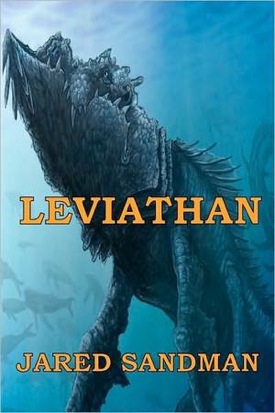 Wondering what the future of books will look like? You’re not the only one. Today, indie author Jared Sandmann is joining us with a guest post on where things might be headed.
Wondering what the future of books will look like? You’re not the only one. Today, indie author Jared Sandmann is joining us with a guest post on where things might be headed.
* * *
Now that Borders Books has gone out of business, many in the publishing industry wonder what the future holds. Barnes & Noble is being kept afloat by its Nook, and Books-A-Million is cutting back on staff and operating hours. So what will the bookselling landscape look like a decade from now?
While I don’t possess a crystal ball, I do have a few ideas. The era of the mega-retailers is coming to a close; in the wake of these superstores, a new wave of independent bookshops will make a resurgence, the very type muscled out by chains like Borders and B&N over the past twenty years.
I think e-books will dominate sales within the next few years. E-books sales are growing as quickly as mass market paperback sales are eroding; however, there will be holdouts who prefer a book’s physicality. Some readers like to handle a novel and thumb through the pages before making a decision whether to buy it. In that regard, online shopping cannot compare to brick and mortar stores. These days many people use bookstores strictly for browsing (and that’s really the bookstores’ fault, a business strategy that backfired). Readers make a mental note of which books look interesting, then later they buy them cheaper from some online outfit. This combines the convenience of window shopping, the Internet’s biggest weakness, with the ease of finding a book’s best price.
In this sluggish economy, most public libraries are strapped for cash. If they could broker a deal with major publishers, institute some system wherein readers peruse and purchase books on the spot (for a percentage of the profits, of course), I think both libraries and publishers can win. After all, people are more apt to buy when they know each sale helps their library, their community.
Each book could come with a unique QR code that readers scan if they want to download a digital copy direct to their e-readers. Or perhaps the QR code could be proprietary to the library system rather than the publisher, whichever is more beneficial.
In the long-term (maybe a generation from now), libraries and indie bookstores will be equipped with POD capabilities. Print on demand technology like the Espresso Book Machine will be available to those who favor physical books. Any file uploaded into the system can be printed and bound within minutes, ready for sale before the pages have even cooled. The problem at the moment is that they’re prohibitively expensive (about $100,000 dollars per unit) and not widely available. Once that price comes down, I think they’ll become popular with readers and booksellers alike.
An e-reader is like owning a portable bookstore that never closes. Downloading a digital book is as easy as pressing a button. I foresee a time when buying a physical copy will be just as simple. One day I’ll be able to place an order with a local library or book dealer and pick up my freshly-printed books within minutes.
Jared Sandman’s Blogbuster Tour 2011 runs from July 1st through August 31st. His novels include Leviathan, The Wild Hunt and Dreamland, all of which are available at Amazon, Barnes & Noble and Smashwords. His next book, The Shadow Wolves, will be released in August. Follow him on Twitter (@JaredSandman) and be entered to win one of several $25 Amazon gift cards. See rules at www.jaredsandman.com for eligibility.
Thoughts? Chime in below!




I’m one of those that still enjoys a paper back copy of all my favorites. But e-books are tremendously easy.
I like this coffee shop pod bookstore idea.I might try to venture in this direction someday. Coffee and books. That’s my heaven.
When I get an ereader, my book pile might go by-by. Most of the big publishers still charge the same price for an ebook as for a paper one, which makes no sense, other than they have a lot of people to pay.
I think the type is on the wall, too, but I’m hoping our B&N will survive as my crit group meets there. And one of our indie bookstores is closing, which makes me sad.
The POD idea is brilliant.
These are great ideas. I’d love to see libraries benefiting from changing technologies.
I have a Kindle, but I don’t mind that my daughter has snaffled it, because a REAL book will always win out for me. The technology of books & reading has made a huge leap in recent times.
Ever since I bought my Kindle I’ve started buying many more books much more regularly, and my reading has diversified. I’m reading from big publishers, independent publishers, self-published authors, and with the ability to preorder books I’m buying books in situations where previously I would have just waited to get them at the library. I’m interested to see how library lending for the Kindle works when it finally becomes available as well. My library has an arrangement with Overdrive so I’d be able to use the service once it went live.
Pingback: Kodak + Espresso Book Machine = Huge News | Jared Sandman